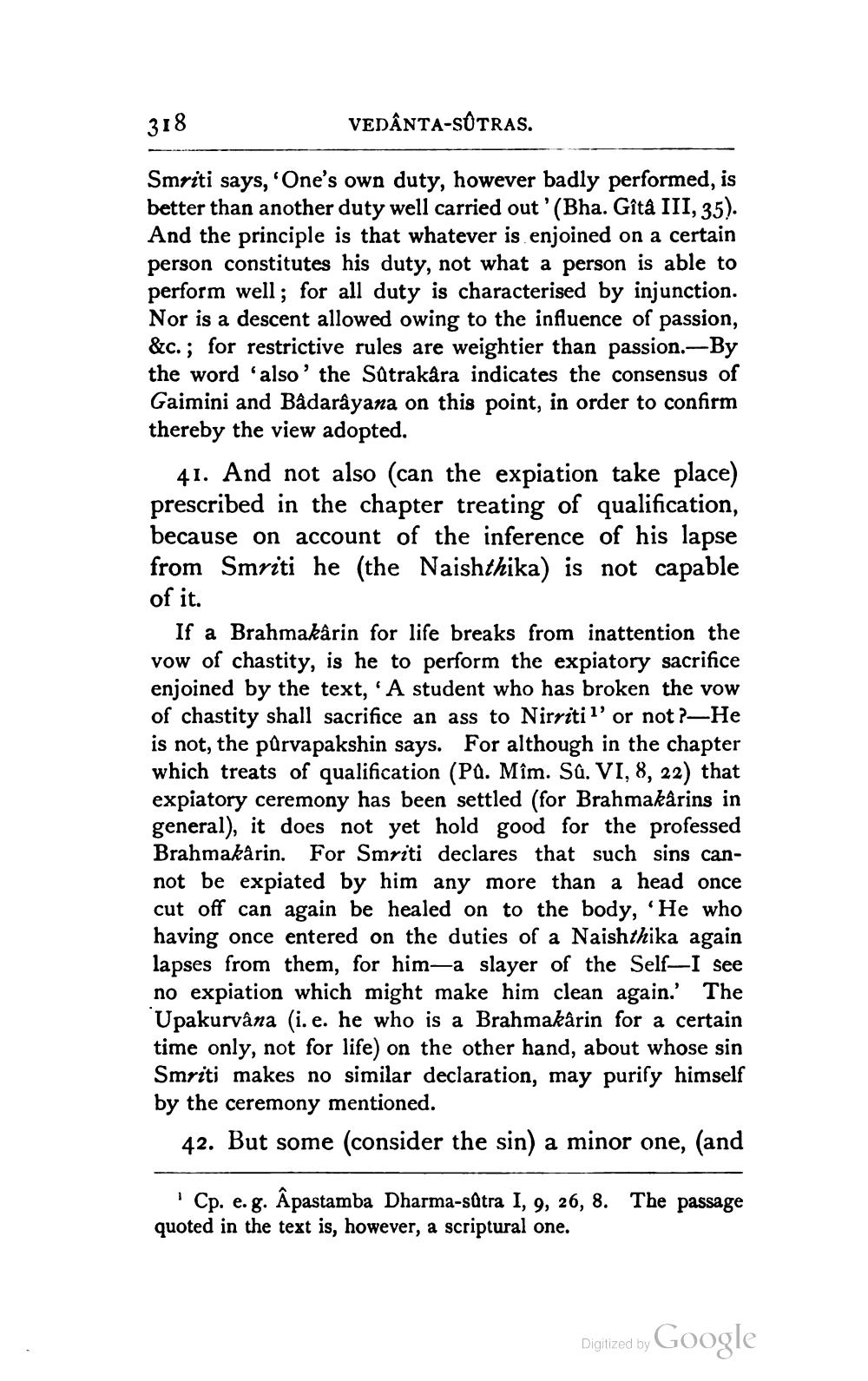________________
VEDANTA-SUTRAS.
318
Smriti says, 'One's own duty, however badly performed, is better than another duty well carried out' (Bha. Gîtâ III, 35). And the principle is that whatever is enjoined on a certain person constitutes his duty, not what a person is able to perform well; for all duty is characterised by injunction. Nor is a descent allowed owing to the influence of passion, &c.; for restrictive rules are weightier than passion.-By the word 'also' the Sûtrakâra indicates the consensus of Gaimini and Bâdarâyana on this point, in order to confirm thereby the view adopted.
41. And not also (can the expiation take place) prescribed in the chapter treating of qualification, because on account of the inference of his lapse from Smriti he (the Naishthika) is not capable of it.
If a Brahmakârin for life breaks from inattention the vow of chastity, is he to perform the expiatory sacrifice enjoined by the text, 'A student who has broken the vow of chastity shall sacrifice an ass to Nirriti1' or not?-He is not, the purvapakshin says. For although in the chapter which treats of qualification (Pů. Mîm. Sû. VI, 8, 22) that expiatory ceremony has been settled (for Brahmakârins in general), it does not yet hold good for the professed Brahmakârin. For Smriti declares that such sins cannot be expiated by him any more than a head once cut off can again be healed on to the body, 'He who having once entered on the duties of a Naishthika again lapses from them, for him-a slayer of the Self-I see no expiation which might make him clean again.' The Upakurvâna (i. e. he who is a Brahmakârin for a certain time only, not for life) on the other hand, about whose sin Smriti makes no similar declaration, may purify himself by the ceremony mentioned.
42. But some (consider the sin) a minor one, (and
Cp. e. g. Âpastamba Dharma-sûtra I, 9, 26, 8. The passage quoted in the text is, however, a scriptural one.
Digitized by Google




